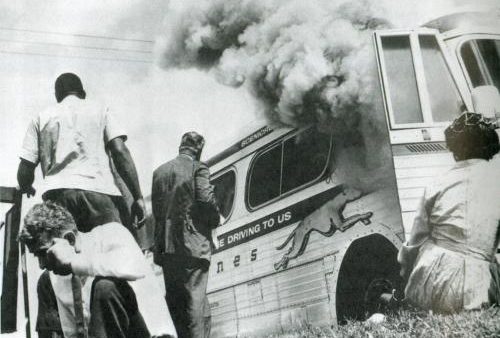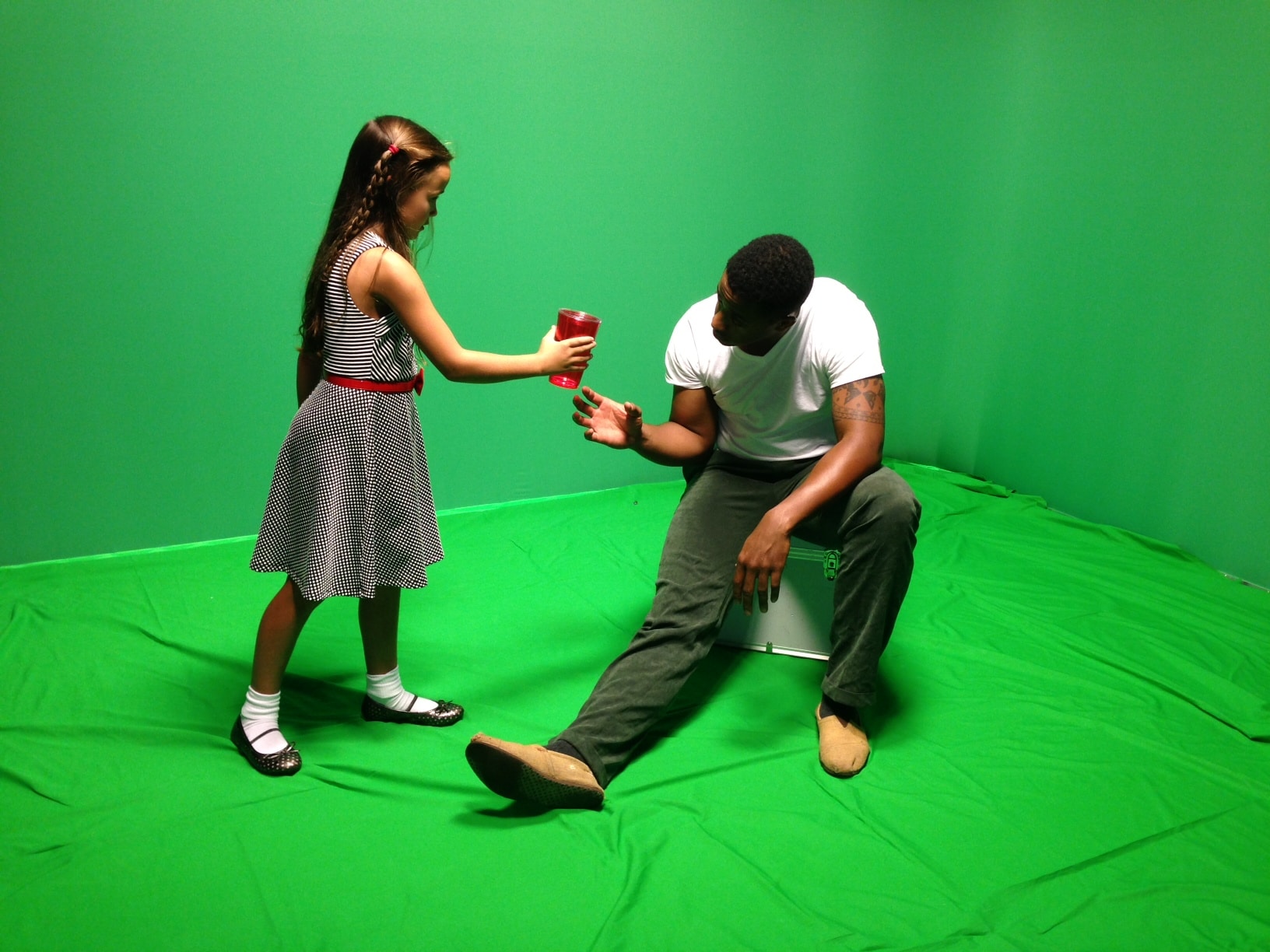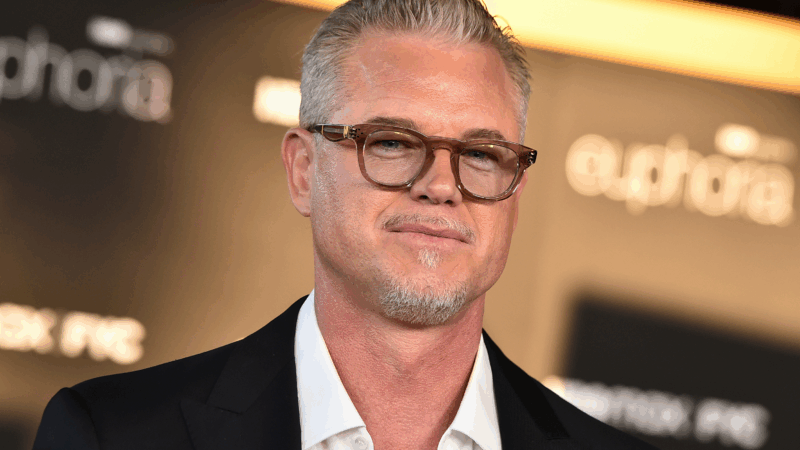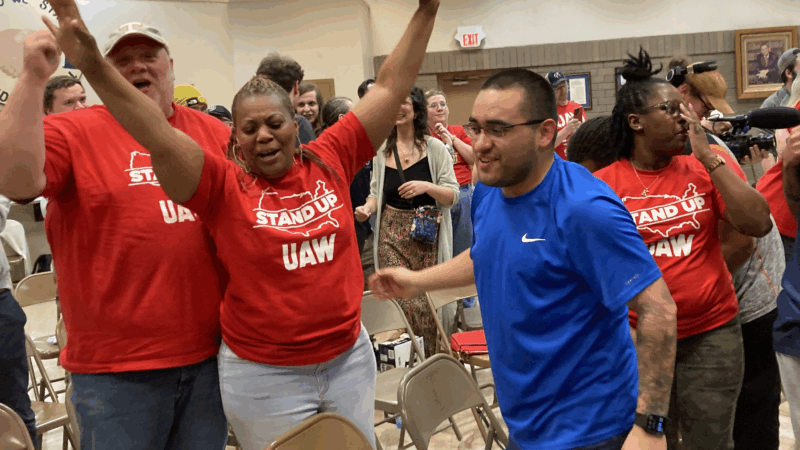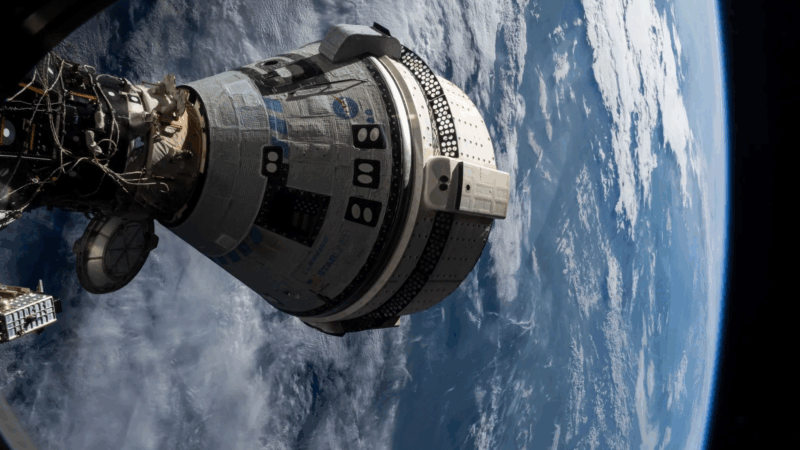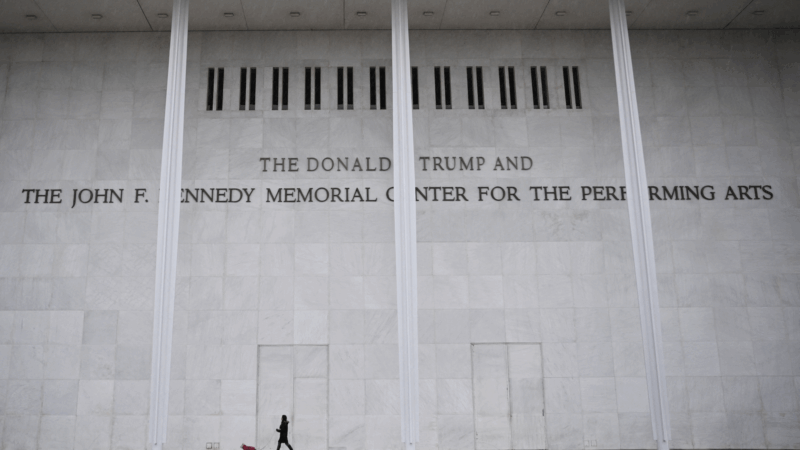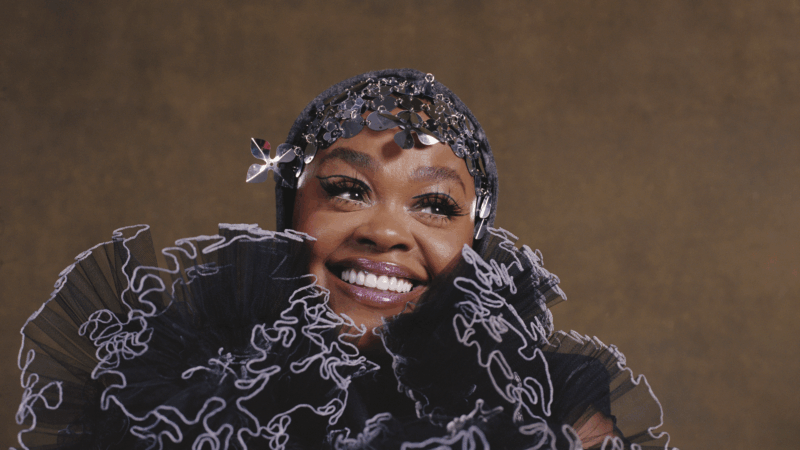She Brought Water to the Freedom Riders: “I Couldn’t Let It Pass”
There’s a new national monument in Anniston to the Freedom Riders, the civil rights activists – black and white – who challenged segregation by riding buses across the South. In 1961, a mob set one of those buses on fire and beat some of the riders. But there’s a lesser-known wrinkle to the story: a little white girl, whose family feared the Ku Klux Klan, brought water to the injured passengers. More than half a century later, Janie Forsyth McKinney tells WBHM why she did it. Listen to the five-minute on-air version of the interview above. Below is the extended 21-minute interview and its transcript.
[00:00:00, Dan Carsen:] Why don’t you start out by telling us about that fateful day in Anniston.
[Janie Forsyth McKinney:] Well, you know the background of the South, with the segregation and all that. Core — Congress of Racial Equality, James Farmer in Washington, D.C. decided to organize a protest of bus riders riding through the South on both Trailways and Greyhound buses to see if the recently ordered Supreme Court decision that said that segregation was illegal on interstate commerce [was being obeyed]. All I know is that I was 12 years old and I was very much aware of segregation and racism in the South, and I was very much against it as a Christian. I didn’t really have a lot of awareness of the big old world outside of me. I knew there was one out there, but that was my Christian beliefs that led me to do something that day.
[00:01:00, Carsen:] Tell us a little bit about what you did.
[McKinney:] OK. I heard from from my father at the breakfast table where he used to hold court — he had a grocery store and he would talk to us at the table — he’d sort of preach, you know, like he had a captive audience there, and he told us that the agitators up north were planning something. He said, “we’ve got a big surprise party for ’em,” and he just laughed about it. I thought, “Oh my God, somebody is coming down here and they don’t know what they’re getting into now.” My brother says that relating that story shows that I think our dad’s a racist. Well he was a racist. But he was a racist in his context … He went along to get along, because he said if he didn’t — he told me in a fit of honesty — that if he didn’t go along with the Klan, they’d destroy his business. So in his personal actions, he was not racist. In his public — in his utterings, he was. He sounded it and, he was.
[Carsen:] There was serious social and economic pressure to be that way.
[00:02:08, McKinney:] Yeah. But we had a black maid. I mean, what’s with that? I mean, we weren’t rich of anything. Pearl Seymour was the maid. She started coming to our house when my brother was nine years old. That would be about 1947, when my sister was born. She was always part of the family, but she didn’t live with us. She lived with her brother in town. So I didn’t, I couldn’t understand what all the fuss was about with blacks. I mean, I knew that they had one water fountain and we had another, and they had one school we had another, and I didn’t question that too much. This is this is hard to talk about even now.
[Carsen:] I understand. Please keep telling the story about what happened that day.
[00:02:56, McKinney:] OK. I hope you have a fair and balanced approach to journalism.
[00:03:01] (Laugh.) Definitely.
[00:03:02] Oh I hope so, because I’m putting myself in your hands. Well I was … I had just been saved in the Methodist church. OK. And I was trying to live my life as Jesus would live it. What would Jesus do. You know, I was really one of those. And I was too smart for my own good. I needed glasses. I was whiny, and too thin skinned, and Pearl is the one who protected me when I got bullied. So by the time I was 12 years old and I heard about this, I knew that the Freedom Riders were in trouble and I thought they didn’t understand the extent of the danger they would be in. I said oh my god, they don’t even know, these people will kill them. You know, like they were naive. So the day came and I was in the house and my grandfather who visited us very rarely. My mother’s dad was sitting in the living room when he said, “what’s going on out there?” No … he was watching a baseball game and I said, “what’s going on out there?” And he said, “they just stole the first base and you know they got him out but he said he was safe,” and I said, “no I mean out there out there. So I went outside and there was a crowd already gathering and a bus that had stopped in front of my dad’s store. So let me tell you about my dad’s store. He had a mom and pop grocery store that was next to the house, and the store had a fan shaped parking lot you know, like an offset, in the road.
[00:04:43, McKinney continues:] So that even though the bus was parked in the store parking lot, it was still in front of the house, because it was out on the apron of the fan shape of the store, so I could see it from the house. So I was naturally curious and always … my sister hid under the bed and says she thinks I’m an idiot because I didn’t, but my …
[Carsen:] Sisters will be sisters.
[00:05:09, McKinney:] Yeah. So I walk to the front of the store to watch what was going on, and what I saw was a white mob had gathered around the bus. I was I was standing beside a light pole in front of my dad’s store just, just watching, and I was kind of frozen into place because I didn’t know what a 12-year-old, you know ,what I could do to change anything. So I just watched. So eventually I really saw this: I saw a white arm in the crowd rise above the rest of the people and hit the back window with either a crowbar or chain or something. And then that arm went back down. He was surrounded by people so I couldn’t see who he was. So that arm went back up and poked something in that hole. And it turned out to be an incendiary device that got the whole bus burning. The FBI really came after me. They really wanted me to identify somebody, and they had a suspect. And they would bring me stacks of pictures of the same guy over and over, and I said, “I can’t identify him. Why don’t you talk to some people who were up there with them?” So anyway the people started getting off the bus. I heard them crying for water. And water is a basic need — I mean you don’t have to be political to give someone water who needs it. And I could tell from their voices that they needed it — they were very raspy.
[00:06:36, Carsen:] … What was their condition and what had just happened to them?
[00:06:41, McKinney:] They had been on the bus in partners — white and black — stopping at bus stations and checking out whether the bus station was segregated. They would try the water fountains, other waiting rooms you know. And in Anniston the mob surrounded the bus outside and they didn’t go into the Anniston Greyhound terminal. This was a greyhound. Somebody slashed the tires on the bus and they followed it out of town. And when he couldn’t roll anymore because the slashed tires had the tires burning up and rolling on the rims, he had to pull over somewhere. And the natural place was that cut-out in the road. That was my father’s parking lot for his store. So that’s how I got there. When I heard the need in their voice for water, I said, “that’s something that I can do.” So I started hauling buckets of water from the house to the middle of the people gathered out on the front of our lawn. I mean, they were out there lying on the ground and throwing up and screaming, rasping for water.
[Carsen:] From smoke inhalation?
[McKinney:] Yeah. They had a guy named Albert Bigelow who was from the Navy, and he told everybody to get down next to the floor — that’s where the air would be, and to make their way to the front door. But there was one lady on that bus who wasn’t even a Freedom Rider and she panicked … she stood up too high and she got a real bad dose of inhalation. And I think, as luck would have it, I think I targeted her first because she said she was in such bad shape. She reminded me of Pearl. I took my bucket directly to her and gave her a glass of water. When she seemed like she would be OK, you know, I handed her water, tried to comfort her, wash her face, when she seemed like she was going to be OK I just got up and picked somebody else and did it all over again until I ran out of water. And then I would go back and get some more water, but I couldn’t get much because I was just 12 years old and kind of scrawny anyway. So the bucket was less than half full. If it got any more full, I couldn’t carry it. I don’t know if you know about buckets. Do you know buckets?
[00:08:57, Carsen:] (Laugh.) I know of buckets. Sure.
[McKinney:] It was a zinc coated washtub with a bale handle size “A.” A little one. Not a great big one that everybody put the family in on Saturday night. It was a smaller one, but it was still still heavy when it was loaded with water.
[00:09:17, Carsen:] I mean, were you worried about what your parents would think, you going out to help these folks?
[00:09:22, McKinney:] I wasn’t so much worried about what my parents would think as what Kenneth Adams and his family would think. He, Kenneth Adams was the bigwig in the Klan and he was instrumental behind planning this thing. And in fact, the reason the freedom riders hadn’t been bothered much. Well, Rockhill South Carolina is an exception that I found out about later. But they hadn’t been bothered at every bus terminal because the Klan had been called to come to Anniston and make a show of force there. I was afraid that the Klan would do something to me. But I thought, you know, what are they going to do? I’m a little girl. It’s going to look bad.
[00:10:04, Carsen:] You were already thinking about when you were 12?
[McKinney:] Yeah, I wasn’t stupid.
[Carsen:] I guess not. (Laugh).
[McKinney:] And I knew I could I could hide behind my age and my gender — just play dumb … It worked.
[00:10:19, Carsen:] Did you know who the freedom riders were and what they were doing before they showed up in your neck of the woods?
[00:10:24, McKinney:] Oh yeah. I mean it was like horror stories to tell children, you know, like “you better be good.” It was like that — it was like a phantom, and you could see at the edge of your eyes but when you look straight toward it, it was gone, because they blended in there. In the daytime they didn’t wear all that crap around.
[00:10:45, Carsen:] You mean the Klan — not the Freedom Riders — the Klan was the phantom.
[00:10:48, McKinney] Yeah … The Freedom Riders were just the stupid people who thought that they could do something about it by putting themselves in a bus and riding down through the South as vulnerable as they would be. Now I really thought, you know, noble but stupid is what I thought about them.
[Carsen:] Even when you were 12, you were thinking like that?
[00:11:08, McKinney:] Yeah.
[Carsen:] But what do you think about it now?
[00:11:11, McKinney:] What do I think about it now? I think … they were brave. I think they were courageous. I think that they stepped out into an abyss that only the very very brave can see, can do, and that I admire every one of them. And I’ve had some lifelong friends from there. I just love every single one of them. We’re getting old now though.
[00:11:34, Carsen:] I gather you were happy with the recent monument declaration.
[00:11:38, McKinney:] Oh yes I was. I can see where people in the neighborhood don’t want it. You know there were … there was some pushback from the neighbors and even my own sister didn’t want that. She said, “why do we want that thing there?” I said, “darling, that was an important step in civil rights,” and I said “it needs to be commemorated.” And in fact … the people who used to bully me aren’t going to be able to get away from Janie, because I hear there’s been a statue commissioned that shows me handing Hank Thomas a glass of water. And That’s gonna be be good.
[00:12:12, Carsen:] Does any of this depend on the Trump administration though?
[McKinney:] No. It’s going to happen. Going to happen. It’s already been funded. I mean … well I suppose if you can cut off people who have green cards and not let them come back and all that, you can stop this too. Trump is just a complete unknown to me.
[00:12:37, Carsen:] … First of all, you went out and helped people who were clearly in need. Do you consider that heroic?
[McKinney:] It was necessary to my definition of a human being. Good Samaritan — I was raised on that. I couldn’t, I couldn’t let it pass. I couldn’t let that insult pass without doing something against it.
[00:13:02, Carsen:] How did your parents react to what you did?
[00:13:04, McKinney:] They didn’t talk about it. And you know, I kind of created problems for my dad, because afterward, the Klan members would come to the store and say, “Are you keeping an eye on that little girl?”
“Oh yes sir. Yes sir. She’s never out of my sight you know.”
He took the hate for me really.
[Carsen:] Did that they start out like a normal day?
[McKinney:] Yeah. Started out like a Sunday. I mean, the only thing odd about it was my grandpa was there and he never showed up. But it started out like a normal day to me. We went to church, we came home. I guess mother was cooking hamburgers — that’s what she usually did on Sunday … this thing started at about one o’clock in the afternoon. So Sunday afternoon, you know, like, church was over, lunch or dinner or whatever you had at twelve was over, and it was time for observing the Sabbath and keep it holy. I’m being very sarcastic here. That’s the trouble with my humor — it’s so dark. Most people don’t get it.
[00:14:17, Carsen:] And sometimes it’s a little tricky in radio, but I can probably — I can try to make sure it comes through in the extended version.
[00:14:25, McKinney:] And in the extended version, tease it out and let them know that I was a concerned Christian. I thought that it was my Christian duty to do something. And yes, I knew the danger, and I just took a chance. I mean, my dad couldn’t do anything. They’d kill him. Mother couldn’t do it — they’d call her a slut. My sister was too scared to do anything and my brother was 21 and home from the Marines — they would have gotten him too. They would have held him to the accountability of an adult male. So I figured a prepubescent female would be the only one who could get away with it.
[00:15:05, Carsen:] Strategic. Just … what a terrific story.
[00:15:09, McKinney:] Well that day changed my life, because I knew after that that I had stirred a hornets’ nest. I didn’t know how much, but I found out later from one of my friends’ dad — from one of my friends whose dad was in the Ku Klux Klan — that the Klan had a meeting to actually talk about what they should do to retaliate against me, if anything. And he actually stood up for me and he said, “I don’t see where she did anything so wrong. Hell, you’d give a dog water.” And the … you know something? That was a crappy defense, but it was a defense and it carried the day … “She’s a little girl, she didn’t know what she was doing.” So as a result of that, you know, powwow and the background that I found out about later, they decided to treat me like the village idiot. You know, like weak-minded, deficient … that she “didn’t understand” about race.
[Carsen:] Intellectually deficient, just because you brought people fighting for civil rights some water? You were the deficient one?
[McKinney:] Yeah. And I knew that if they thought I was deficient, you know, OK. If they say … give me that much of a pass, I’m probably OK.
[00:16:27, Carsen:] In other words, if they thought you had done it purposefully, you know, with intact intellect, they would have punished you probably more severely?
[00:16:37, McKinney:] Yeah. Hank Thomas once told me … he said “you’re just a little girl who didn’t know the meaning of fear.” I said, “I was scared to death, Hank.” What do you mean, “didn’t know the meaning of fear”? I was terrified.
[Carsen:] By the way I’m I’m trying to set up an interview with him. Anything you figure I should ask him?
[00:17:00, McKinney:] I didn’t realize that that ride had been so hard on him. I didn’t realize he had been separated from the crowd and taken out in the dark woods in Tennessee. I didn’t realize that Rockhill it happened. And in fact, I didn’t realize that it had been that tough on him already. But … I would have done the same thing anyway.
[00:17:28, Carsen:] And you live in California now correct? You’re happy?
[00:17:30, McKinney:] Yes. I am happy as a pig in swill out here.
[Carsen:] (Laugh.) Why is that?
[00:17:38, McKinney:] Well we got Governor Jerry Brown yelling at Donald Trump, to say “you’re not going to change our way of life” and I’m sitting here going, “Yeah. Nyeah nyeah nyeah.” … I’m a Southerner in California, and I’m homesick. I’m homesick for, for a lazier lifestyle, for you know, kicking back and not pushing yourself so hard. But I’m I’m not homesick for the racism. And since the Trump election, I have been grateful to whatever Gods there may be — actually, there’s only one. I’m grateful to God that I have landed in a place of relative safety. But I think it’s going to get bad for all of us.
[00:18:26, Carsen:] I have one last question that I always ask everybody at the end of the interview: Is there anything else that you think our listeners or readers should know — anything else at all that, you know, something I should have asked you but I didn’t ,maybe something I forgot — is there anything else at all you think is important for people to know?
[00:18:41, McKinney:] I think it’s important to know where the liberals messed up this election. The liberals did not see any of the people where I grew up. They did not see that these people, even though they like rich people — they love, adore rich people — they can’t stand professionals because professionals who climb up out of the lower middle class to be a lawyer or a professor … suddenly they’re suspicious of them and don’t believe a thing they say. So even though they love rich people, they don’t like professionals, and that section of the population they turned against the people they didn’t trust.
[00:19:22, Carsen:] You think Trump sort of tapped into that resentment?
[00:19:25, McKinney:] I think he did. I think he played it — I think he played it to the hilt. I mean, he wouldn’t finish his sentences. He would say — he would lead people to a conclusion and then not say it, and he would let people fill in the blank. That’s a typical charlatan trick and they fell for it … I’m not mad at them. I mean, it’s understandable. I am probably an East Coast liberal by the dint of my nature.
[00:19:57, Carsen:] How’d that come about for a little girl from Anniston?
[00:19:59] I was curious. You know, we had Fort McClellan in Anniston, and we used to go to town on Saturdays and they had the “WACS.”
[Carsen:] The “WACS”?
[McKinney:] … Yeah, Women’s Army Corps. They call them [WACS]. And I used to go up to the WACS and I would just stare at them. I admired them so much. I thought they were beautiful in their green and white striped skirts and their clunky shoes and their shoulder bags. I thought they were gorgeous, and they had all different colors, faces, and different accents. I just thought they were fascinating, you know. And I would go up get too close to them and stare. “Golly they sure are good looking.”
[Carsen:] That’s what started it all?
[00:20:47, McKinney:] I don’t know why. I don’t know why I am outward looking. My sister used to say, “Janie, if a UFO were to hover over Anniston, you would run out and greet it and say ‘hey.'” My sister also said, “show me an underdog, any underdog, and Janie will be their champion.”
[00:21:08, Carsen:] Well, Janie, I’m glad you are that way, and there are a lot of people out there — on that fateful day and I’m sure since then — who feel the same way. Thank you so much for your time. It’s been great.
[00:21:17, McKinney:] I hope I haven’t been talking your ear off.
[00:21:20, Carsen:] No, it’s great, it’s great. This is going to be the most interesting extended web version that I’ve ever done.
[McKinney:] Uh oh.
Eric Dane, ‘Grey’s Anatomy’ star and ALS awareness advocate, dies at 53
Eric Dane, the celebrated actor best known for his roles on "Grey's Anatomy" and "Euphoria" and who later in life became an advocate for ALS awareness, died Thursday. He was 53.
Venezuela approves amnesty that may release of hundreds detained for political reasons
Venezuela's acting president has signed into law an amnesty bill that could lead to the release of politicians, activists, lawyers and many others. The approval marks a stark turn for the nation.
In a historic vote, Tennessee Volkswagen workers get their first union contract
Two years ago, the successful union drive at this plant was expected to spark victories throughout the South. But now, as members vote to make their contract official, momentum has fizzled.
NASA chief blasts Boeing, space agency for failed Starliner astronaut mission
NASA's Jared Isaacman slammed Boeing for failures with its Starliner spacecraft, which was deemed unsafe to return its crew of two astronauts from the International Space Station
Internal memo details cosmetic changes and facility repairs to Kennedy Center
Trump announced his plans to close the Kennedy Center entirely for two years "for Construction, Revitalization, and Complete Rebuilding." The announcement came after many prominent artists canceled existing scheduled appearances.
R&B stars consider two ways to serve an audience
Two albums released the same day — Jill Scott's return from a long absence, and Brent Faiyaz's play for a mid-career pivot — offer opposing visions of artistic advancement in the genre.

